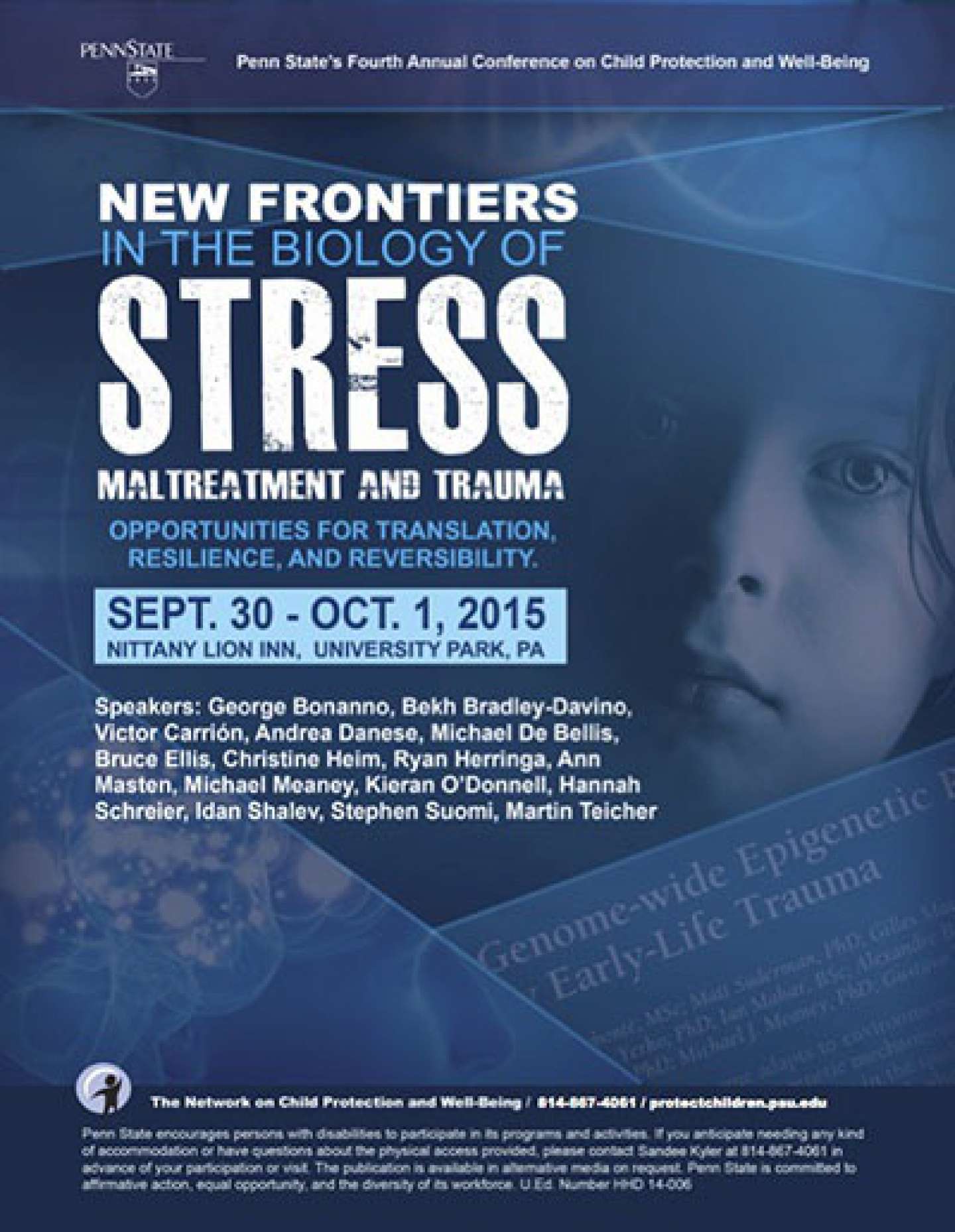New Frontiers in the Biology of Stress Maltreatment and Trauma

Novel research in the science of stress biology has opened exciting new avenues for understanding how stress ‘gets under the skin’ providing real opportunities for translation. The fields of endocrinology/immunology, neuroscience and genomics are, independently and together, advancing knowledge that will change the way we think about how early-life stressors such as how child maltreatment and other forms of traumatic experiences become biologically embedded and can impact subsequent health, development and well-being.
This collective interdisciplinary science is grappling with the notion that there might be biologic explanations that characterize why some effected individuals are more susceptible than others to the deleterious impact of stress. More importantly, the fact that environmental buffers can explain some of these individual differences, sheds light on the real possibility that early adversity can be interrupted, intervened upon and even reversed. Understanding how nurture intersects with nature will spark critical innovation in how to curtail the acute impact of stress, maltreatment and trauma and ways to prevent further deterioration.
The purpose of this conference is to showcase recent biological advancements related to child maltreatment and other forms of trauma and chronic stress. Three distinct sessions will cover processes of biological embedding emphasizing the role of the endocrine system/immunology, brain development and genomics. A fourth session will focus on resilience from a multi-level, multidisciplinary perspective. The conference will culminate in a panel discussion of the data and ideas presented in these four sessions where discourse among panel and audience members will be encouraged.
Translation is a fundamental, yet often illusive, principle of science. Each session will therefore include an integrative "translation" and "future-directions" component with particular focus on (1) how this research can be understood in the context of serving and treating stress-exposed individuals, and (2) applicable strategies for prevention, mitigating injurious outcomes, and reversibility. With eclectic audience representation, this conference is a unique opportunity to encourage a dialogue between expert researchers, trainees and front-line practitioners—an essential process in illuminating the “next steps” in scientific inquiry and the evolution of scientific knowledge into real-world application and practice.
Download a printable PDF about the conference.Conference Information
Cheri McConnell, Child Maltreatment Solutions Network
Email: cln3@psu.edu
Phone: 814-865-2193
Register Here
Thank you to our Sponsors!
- The Bennett Pierce Prevention Research Center
- Clearinghouse for Military Family Readiness
- The Child Study Center
- College of Information Sciences and Technology
- The College of Nursing, PSU
- Department of Biobehavioral Health, PSU
- The Department of Educational Psychology, Counseling, and Special Education
- Department of Human Development and Family Studies, PSU
- Public Health Sciences
- The Pennsylvania Coalition Against Rape